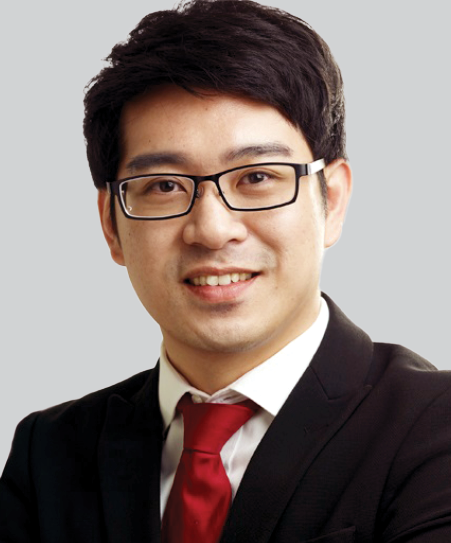


TAKEAWAYS
A company announced to its employees on 10 December 2022 of the decision to pay non-contractual bonus to those who remained in service till 31 December 2022. The payment was made on 5 February 2023. When should the company report such non-contractual bonus?
“Non-contractual bonus is taxable based on the date on which the bonus is paid. Since the employees become entitled to the NCB on 5 February 2023, the income should be reported in Year of Assessment (YA) 2024,” clarified officers from the Inland Revenue Authority of Singapore (IRAS).
At a recent webinar organised by the Singapore Chartered Tax Professionals, IRAS officers shared common individual tax errors as well as tax changes affecting taxpayers in YA 2024 and beyond.
Withholding Monies
Generally, a Singapore employer is required to seek tax clearance when its non-Singapore Citizen employee ceases employment, goes on an overseas posting, or plans to leave Singapore for a period of more than three months. A common mistake that employers make is withholding only one month’s salary for the purpose of tax clearance.
It should be noted that employer should withhold all monies that are due to the employee from the date the employer is aware of the employee’s impending cessation of employment or departure from Singapore. Such monies should be withheld for a period of 30 days from the day Form IR21 notification is given, or until tax clearance directive is issued by IRAS, whichever is earlier.
Which Form to Prepare – IR8A or IR21?
As a general rule of thumb, employers do not need to file Form IR8A for an employee if tax clearance (Form IR21) has been sought at the point of the employee’s cessation with the company.
For cases where tax clearance is not required (that is, employee’s overseas assignment is incidental to his Singapore employment and is less than six months), the employer should continue to file Form IR8A the following year to report his full remuneration. On the other hand, if the employee’s overseas assignment extends beyond six months, Form IR21 should be filed instead.
Deemed Exercise Rule
Another common mistake is employers erroneously omitting the reporting of unexercised share options (ESOP) or unvested share awards (ESOW) for tax clearances. It should be noted that any ESOP or ESOW is deemed exercised when a non-Singapore Citizen employee ceases employment (that is, when tax clearance is applicable). Accordingly, the deemed gains should be reported in Form IR21.
After reporting the deemed gains, if the employer is aware that the actual gains are lower than the deemed exercised gains, the employer/employee may write to IRAS with details of the actual vesting, to request for a reassessment.
Work Remotely from Singapore
One common issue involving Singapore Citizen or Singapore Permanent Resident employees with a flexible work arrangement, allowing them to work remotely from Singapore for their overseas employers, is the failure of the overseas employers to prepare Form IR8A.
In such a scenario, the Singapore employees should request their employers to prepare Form IR8A for them to report their employment income to IRAS. This is no different from Singapore-based employees who are employed by a non-resident employer.
Work Remotely from Overseas
On the flip side, for foreign employees employed by a Singapore company but work remotely from overseas, the typical question is whether an Auto Inclusion Scheme (AIS) for Employment Income submission is required.
Let us take the example of a foreign employee employed by a Singapore company on 1 November 2023, but who worked remotely overseas until he obtained his employment pass and started working physically in Singapore from 30 November 2023.
In this example, AIS submission is required as the remote working arrangement is temporary. Accordingly, the Singapore employer should report the foreign employee’s remuneration from 1 November 2023 to 31 December 2023 in YA 2024.
Increased Top Marginal Personal Income Tax Rates
In line with its goal to enhance the progressivity of personal income tax of tax-resident individual taxpayers, the government has increased the top marginal personal income tax rates in Singapore. From YA 2024, resident individual taxpayers’ chargeable income between $0.5 million and $1 million will be taxed at 23%, while that in excess of $1 million will be taxed at 24%.
The personal income tax rate for non-tax-resident individual taxpayers (except on employment income and certain income taxable at reduced withholding tax rates) will correspondingly be raised from 22% to 24%.
Points to Ponder
Not Ordinarily Resident Scheme
The Not Ordinarily Resident (NOR) scheme, which provides tax concessions (such as time apportionment of Singapore employment income) to qualifying individuals for five consecutive assessment years, will cease.
Points to Ponder
Equity Remuneration Incentive Scheme
The Equity Remuneration Incentive Scheme (ERIS) provides certain tax exemption on gains derived from ESOP and ESOW plans over a 10-year period, subject to qualifying criteria. To rationalise the tax treatment of remuneration, regardless of form, for employees, the government announced in 2013 that ERIS would be phased out.
Points to Ponder
For a smoother individual tax-filing experience, employers and employees can learn from the common errors and stay abreast of the tax changes.
So, stay informed, stay ahead, and file with confidence. A stress-free individual tax season awaits!
Felix Wong is Head of Tax, Singapore Chartered Tax Professionals (SCTP), and Joseph Tan is Tax Manager, SCTP.